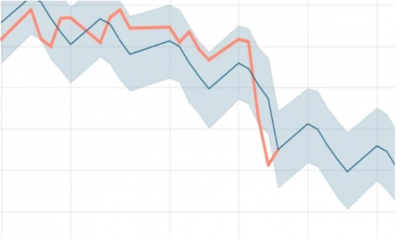According to new research, a person’s blood type can predict if you are at the risk of having an early stroke. When an ischemic stroke occurs, the blood supply to part of the brain is interrupted or reduced, which prevents brain tissue from getting oxygen and nutrients. This can cause brain cells to die in minutes.
Blood types refer to the wide range of chemicals found on the surface of our red blood cells. Among the most common are A and B, which can appear together as AB, separately as A or B, or not at all as O. When compared to those with other blood types, those with type A blood tend to be more prone to suffer a stroke before the age of 60, the study adds.
This paper was published in Neurology and is titled, ‘Contribution of Common Genetic Variants to Risk of Early-Onset Ischemic Stroke.`
The gene for the A1 subgroup and early-onset stroke have been linked in an explicit manner by genomic study. Researchers gathered information from 48 genetic studies, which comprised approximately 600,000 non-stroke controls and about 17,000 patients who had had strokes. The ages of all participants ranged from 18 to 59.
Two regions highly connected with an early risk of stroke were found. One matched the location of the blood type genes. People whose genomes coded for a variation of the A blood group had a 16 per cent higher risk of having a stroke before the age of 60 compared to a population with other blood types, according to the second analysis of specific blood-type genes.
Those who carried the gene for blood group O1 had a 12 per cent lower risk. The higher risk of stroke among those with type A blood, according to the researchers, is minimal, thus there is no need for additional screening or monitoring.
"We still don`t know why blood type A would confer a higher risk. But it likely has something to do with blood-clotting factors like platelets and cells that line the blood vessels as well as other circulating proteins, all of which play a role in the development of blood clots," said senior author and vascular neurologist Steven Kittner from the University of Maryland.







































